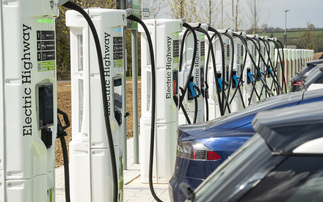Credit: SSE
Study maps out five-point-plan to help businesses and policymakers grasp 'crucial piece' of energy decarbonisation puzzle
Cross-border "power pools" and regulatory stability are critical levers for expanding much-needed electricity storage capacity as power grids worldwide shift towards more flexible, intermittent sources of renewable energy on the path to net zero.
Those are just two of the leading recommendations in a new report this week by the University of Cambridge Institute for Sustainability Leadership (CISL), which highlights a number of both opportunities and challenges still facing the burgeoning energy storage sector, even as it enjoys rapid growth in investment and innovation.
Published on the eve of the G7 summit this weekend in Tokyo, the report considers explores the potential benefits and hurdles for a raft of different energy storage technologies, including hydropower, liquid air storage, utility-scale batteries and thermal energy storage, while compiling insights and best practice from regions such as South Africa, Japan, Chile and the EU.
Crucially, given the complexity of different national energy and planning markets, the report stresses the importance of tailoring electricity storage solutions to each country context to determine which technology is most appropriate, by considering different geographical constraints, business environments and the availability of finance, policy and regulatory frameworks.
Moreover, it underscores the importance of policymakers providing "regulatory certainty" through clear rules and long-term grid planning, as well as developing a reliable financial landscape featuring grants, subsidies, tax incentives and low-interest loans to help reduce the risks associated with investing in energy storage technologies.
Supply-side policies are also crucial, and should be supplemented with demand-side management, it argues. Decision-makers must also work across borders to create regional "power pools", it adds.
The report comes barely a month after environment and energy ministers from G7 countries vowed to decarbonise national power sectors by the end of the decade, while also pledging to speed up renewable energy development and phasing out fossil fuels to achieve net zero in energy systems by 2050 at the latest.
However, while Beverley Cornaby - director of policy and systems change collaborations at CISL - praised these commitments as both a demonstration of ambition and an offer of substantive scaffolding for net zero action, she stressed that energy storage was also a "crucial piece" of the decarbonisation puzzle.
"The first companies and investors to roll out reliable, scalable and affordable energy storage solutions will gain a large portion of the market share and benefit from the first mover advantage," she said. "And the first governments can accelerate the transition of the energy sector to provide the consistent, zero carbon supply of energy needed to meet their emissions reduction targets."
CISL's recommendations follow a flurry of activity in the UK energy storage sector in recent months, including SSE Renewables' plan to transform the Ferrybridge site of a former coal-fired power station into a 150MW battery storage facility, which is set to become operational from late 2024. Moreover, UAE clean energy giant Masdar is plotting a £1bn UK battery storage portfolio using Octopus Energy Group's energy technology platform Kraken, under a major new agreement between the two firms announced last week.
Keep up to date with all the latest green business news by signing up to the free Daily and Weekly BusinessGreen Newsletters.










